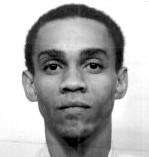Walter Williams was executed by the State of Texas for a murder committed during a robbery
According to court documents Walter Williams would rob a convenience store, where he use to work, and in the process of robbing the store would shoot and kill the store clerk
Walter Williams would be arrested, convicted and sentenced to death
Walter Williams would be executed by lethal injection on October 5 1994
Walter Williams Photos

Walter Williams FAQ
When was Walter Williams executed
Walter Williams was executed on October 5 1994
How was Walter Williams executed
Walter Williams was executed by lethal injection
Walter Williams Case
Walter Key Williams grew up in San Antonio’s poor East Side. His childhood neighborhood has been referred to as one filled with guns, gangs, and drugs.
The facts of Williams’s crime are apparent. From his 1994 appeals case, he and a friend decided to go out one night. It was Feb. 9, 1981. Theodore Edwards, later named as an accomplice, accompanied Williams to his home. They took a .38-caliber gun belonging to Williams’s mother. After leaving the house, they walked to a nearby gas station. That was where the first of two murders that night began.
Williams waited for his friend, while Edwards went to the service window. Edwards fatally shot the gas station attendant, reached in through the window, and grabbed some money. After they fled from the scene, they split the cash. According to one of Williams’s lawyers, that was when Edwards turned to Williams and said now that he’d killed someone, it was Williams’s turn.
Later that same evening, the pair went for a car ride. At approximately 2 a.m. Daniel Liepold, a local convenience store clerk, was visiting with a friend. His friend had to run a quick errand, but promised to return shortly. When the friend came back a short time later, he couldn’t locate Liepold.
When a San Antonio Police Department officer arrived on the scene and discovered Liepold lying in a pool of blood. After police arrested Edwards, who was found wondering around the store property after Liepold’s murder, they were led to Williams’s residence. Upon arriving, Lucian Williams, Williams’s father, allowed the officers to look for his son. The ironic twist to the arrest and crime was that when police officers arrested Williams, they found the murder weapon lying next to the only birthday card Williams received on his birthday. The card was from Liepold.
Roy W. Thomas, a retired San Antonio Police detective, was the arresting officer. He remembers that the facts and evidence in Williams’s case were strong. “This was a good, solid case…we had good, solid evidence, eyewitness testimony, and even some of Williams’s family members were willing to testify against him,” he said.
But, how weighty is one’s environment when it comes down to the facts in a capital punishment trial? For the attorneys that argued Williams’s appeals: they believed it was extremely important. Joan M. Cheever, an attorney and journalist, along with Robert B. Hirschhorn, an attorney hired to handle Williams’s appeals, tried to appeal the decision on thirteen grounds.
According to Cheever, the primary grounds for appeal was going to be the ineffective assistance of counsel. This was a referral back to his court-appointed attorneys: Allan R. Manka and Michael Callahan. Manka, currently in private practice in San Antonio, testified at one of the three evidentiary hearings about the strategy he and his partner used during the trial. Manka later gave his opinion of the trial. “I don’t think he (Williams) got a fair trial,” he said. “Now, even the Supreme Court thought I did a good job. But the job of an attorney is to make sure the jury representatives selected are favorable to your case.”
He elaborated about the selection process of the jury and how difficult the trial judge made the selection process. “There were time restrictions placed on our ability to make good decisions on jurors. The judge had an egg timer and by the end of 15 minutes…the damage was already done,” Manka said.
He explained further that they did have an opportunity for a lesser charge. “Well, there was a plea bargain attempt,” he said. “He (Williams) refused.” Manka pointed out that Williams’s case was the only death penalty case he ever lost.









